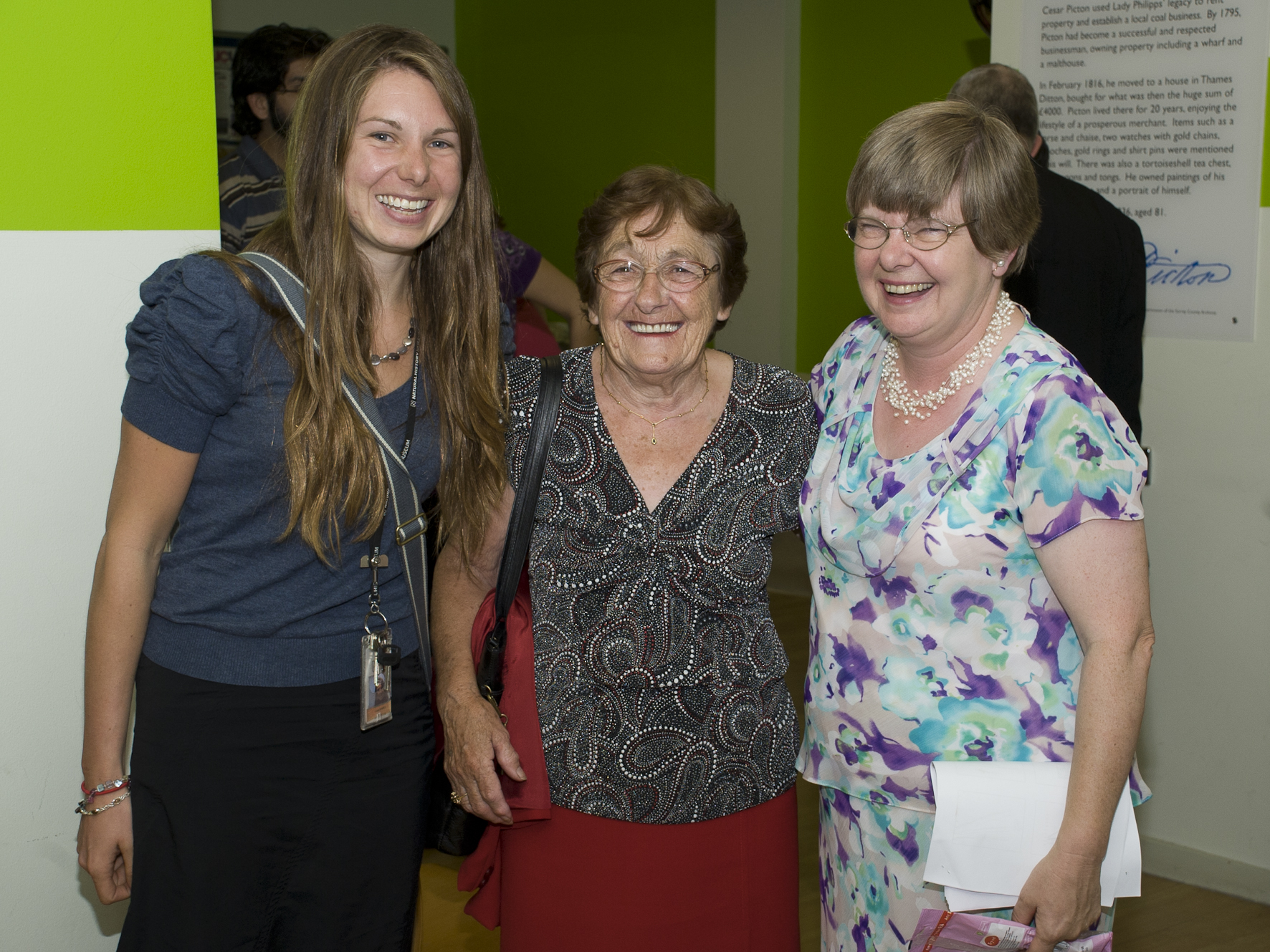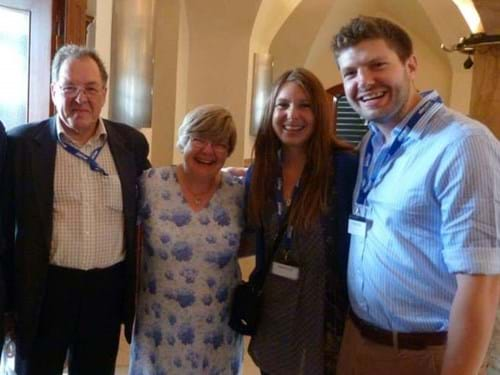Pause carousel
Play carousel

Professor Edith Sim (pictured top right) is a distinguished scientist who is an Emeritus Professor at Kingston University and the Department of Pharmacology, University of Oxford. Edith grew up in Dundee and we spoke to her about her childhood, her career, and her recent appointment to Abertay’s Court, the University’s Governing Body.
Can you tell us a bit about your background and growing up in Dundee?
I was brought up near the Hilltown – Rosebank Street – and many of my family lived in Stirling Street. Many of the buildings around that area were demolished when I was around 10 years old as was happening to all the old tenements in Dundee. We moved to a house opposite Baxter Park and I remember being thrilled that it had a bathroom!
One of my early memories as a child is playing on the shelters remaining from the Second World War – that was our fun!
I was at Rosebank School and remember playing skipping in the playground. I then moved to Morgan Academy and it was such a change from a small primary school. It was quite daunting.
My dad had been Dux of Science at Rockwell School and I was very keen to get science lessons as he spoke about science so enthusiastically.
Did you always know you wanted to go to university?
My mum had an amazing reverence for education despite having had to herself leave school at 13 and work in Carrharts sewing factory.
It was strange as there was no precedent for going to university in my family at all but my parents were very much of the mindset that education was a way to improve one’s life chances. I was an only child so had their undivided attention and support as well as a very supportive extended family who all lived nearby.
Not many people end up going to a university as prestigious as Oxford – what was that experience like for you?
I studied Biochemistry at the University of Edinburgh after attending a short course for a prospective students when I was in sixth year at Morgan. The British Association for the Advancement of Science, as it was then, had a meeting in Dundee in 1968 and one of the people there recommended Edinburgh to me.
After my first degree, my future husband Bob Sim (from Glenfarg) and I went to Oxford together. It was a total culture shock. My Presbyterian upbringing did not prepare me for life there. We were also stony-broke which made life difficult.
Our two-year stint in Grenoble as postdocs where we earned enough money to eat out in nice restaurants and go skiing also were very formative.
Could you please explain what your academic specialism is?
I am interested in the interface between chemistry and biology. Much of my research work is around how medicines are converted in the body to different chemical forms and I spent many years studying enzymes that carry out these transformations and found there are versions in bacteria including in the organism which causes TB. I ended up researching the enzyme in TB and so have also been involved in finding treatments through these studies.
My mum spent some time as a girl in a sanatorium in Auctherhouse because my grandmother had died of TB at the age of 26, so this work had very personal significance for me.
Being a woman in science must have been challenging at times. Can you tell us about that experience?
Yes, it has been challenging but one of the upsides of being a woman in science is that it made it easier to be get noticed as there were fewer women than men around. However, there have been difficult times, particularly at school. One of my teachers in secondary school was not welcoming to girls in his chemistry class and I was the only girl. At the time, this was tough, but I think it actually provided me with resilience for later in life.
There were times in my career, particularly when I was the head of my department when male colleagues were rather difficult but my family and other colleagues provided wonderful support.
What advice would you give to women and girls who want to succeed in academia?
I would give the same advice to young men and young women: “Don’t look down – look them [whoever is speaking to you] right in the eye."
A lot of success is being in the right place at the right time. For me, the most important thing was to earn the scientific respect of my colleagues. Many of these colleagues are true friends – the internationalism of a small scientific discipline is a wonderful thing that transcends national boundaries and customs.
What has been the most memorable moment of your career?
I was fortunate enough to be awarded the JR Vane medal by the British Pharmacological Society and my husband that same year was awarded a medal by the European Complement Network. On both occasions our adult children Grace and Francis (pictured below) were present and that was really lovely.
